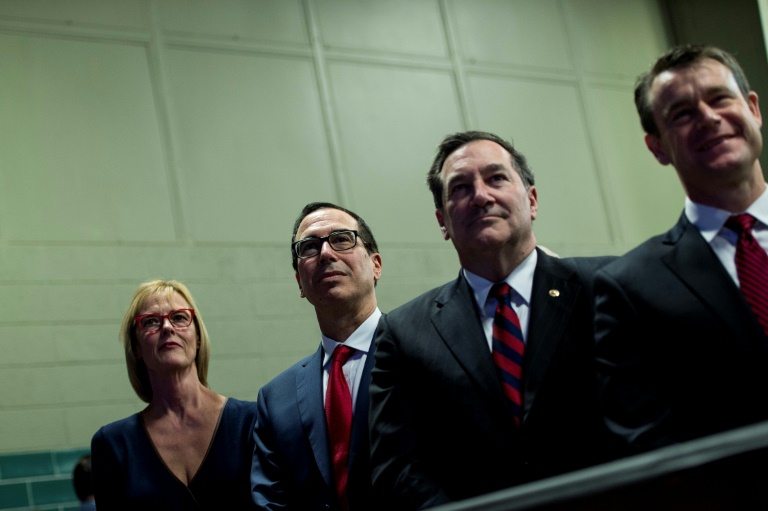Driver crashes into six trucks and five other vehicles on N3 in Durban
The largest US labor union, meanwhile, denounced the new plan as a “con game” likely to result in cuts to essential public services and social spending in the coming years.
Trump and Republican lawmakers on Wednesday rolled out the new plan, seeking deep cuts to the corporate tax rates, which would officially fall from 35 percent to 20 percent, while abolishing the estate tax on inheritances.
Brad Close, senior vice president at the National Federation of Independent Business, said the tax overhaul was crucial for jump-starting investment and job creation.
“Small businesses account for nearly half of gross domestic product and create two out of every three new jobs,” he told AFP. “Small businesses have never fully recovered from the global crisis.”
US industry has persistently campaigned for lower corporate tax rates and for a simplified tax code, arguing that they restrain economic activity and prevent hiring.
The National Retail Federation said Wednesday a comprehensive tax overhaul, the first since 1986, would result in higher wages and more jobs.
The organization cited a recent internal study, which it said showed that cutting corporate taxes to 20 percent would generate between 500,000 and 1.5 million new positions and could encourage foreign retailers to invest in the United States.
Such a corporate tax rate would fall below the average of 22.5 percent in industrialized nations.
– A ‘con game’ –

However, Richard Trumka, president of the AFL-CIO, was scathing in his criticism of the tax proposal.
“The tax plan Republicans put out today is nothing but a con game, and working people are the ones they’re trying to con,” Trumka said in a statement.
Trumka described the proposal as a re-hash of past Republican proposals, which started with promises of shared prosperity and responsible management of the federal budget but ended up endangering social spending and infrastructure.
“There always seems to be plenty of money for millionaires and big corporations but never enough money to do anything for working people.”
According to William Cline, senior fellow at the Peterson Institute for International Economics, gauging the consequences of the tax plan will depend on how it affects the federal budget and revenues.
“It might have some stimulative effects on growth but my sense is the growth impact will not be sufficient to make the tax cuts pay for themselves,” he told AFP.
“Looking back at the past, I would not be too enthusiastic.”
The Trump administration, which has yet to get any major laws passed since the president took office eight months ago, vows that increased economic growth will more than make up for lost revenues.
On Wednesday, the Committee for a Responsible Federal Budget, a non-partisan tax research body, said a rough preliminary estimate was that the proposal could lower tax revenues by $2.2 trillion over a decade.
Cline said extreme outcomes — either strong growth or disastrous deficits — were unlikely and that the result would probably be “something in between.”
Mickey Levy, chief US economist at Berenberg Capital Markets, said finding ways to pay for the tax cuts will be crucial.
“Remember, tax policy involves both economic and budget policy,” he wrote Wednesday in a research note.
“Budget constraints will be key.”
Download our app and read this and other great stories on the move. Available for Android and iOS.